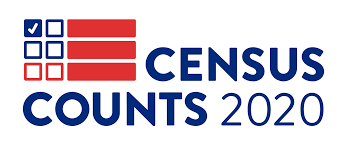Download the PDF
Click here.THE IMPORTANCE OF THE 2020 CENSUS: BACKGROUND
The census—a once-every-ten-years head count of every person living in the United States—is as old as the nation itself. It is required by our Constitution and is the basis for fairly allocating political power among the states and within each state. It has been estimated that 16 states will see a shift in reapportionment (losing or gaining seats in Congress) as a result of the 2020 Census.
In addition, census figures are used to determine where hundreds of billions of dollars in federal money—and billions more in state and private sector funds—are spent every year on infrastructure, health care, schools, factories, stores, and more.
Every state and every community has a stake in making sure that everyone is counted. Communities that are undercounted could lose political influence as well as resources that contribute to individual well-being and thriving communities, like health clinics and public transportation options.
The census is a huge and complex undertaking. Historically, some communities that the Census Bureau defines as “harder to count” have been at greater risk of being missed in the census. These include young children, renters, people living in poverty, people of color, and people with limited proficiency in English.
Vulnerable people and communities are most at risk of being harmed if they are missed in the census, which is why the Census Bureau works with community partner organizations to support outreach campaigns that educate people about why it is important to be counted, encourage them to get counted by completing a census form, and provide assistance in responding to those who might need it.
Getting a fair and accurate count in the 2020 Census should be a shared, nonpartisan national priority. But the 2020 Census has already faced significant challenges, including underfunding that forced the cancellation of some field tests and controversy over the Trump administration’s misguided attempt to force a citizenship question onto the questionnaire at the last minute, without the ability to test its potential impact on response rates. Fortunately, the citizenship issue has been resolved by the Supreme Court and respondents will not be asked to identify the citizenship status of people in their household, but confusion and concern generated by the public controversy could still discourage some people from participating.
Background Resources:

